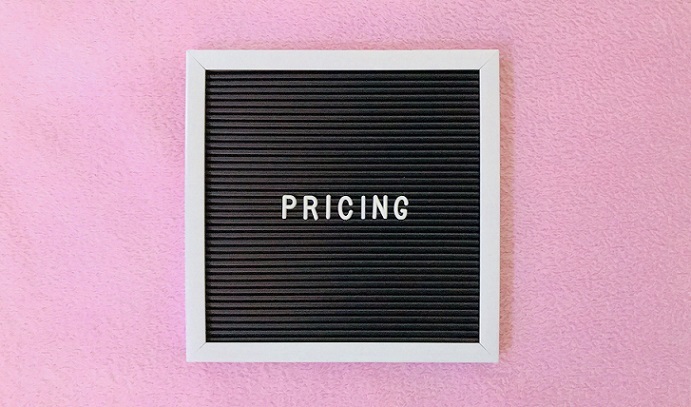
 Data Structure
Data Structure Networking
Networking RDBMS
RDBMS Operating System
Operating System Java
Java MS Excel
MS Excel iOS
iOS HTML
HTML CSS
CSS Android
Android Python
Python C Programming
C Programming C++
C++ C#
C# MongoDB
MongoDB MySQL
MySQL Javascript
Javascript PHP
PHP
- Selected Reading
- UPSC IAS Exams Notes
- Developer's Best Practices
- Questions and Answers
- Effective Resume Writing
- HR Interview Questions
- Computer Glossary
- Who is Who
Salesforce vs. Other CRM Platforms: Which is Right for Your Business?
Introduction
In today's fast-paced business world, having a reliable customer relationship management (CRM) platform can be the key to success. With so many options available, it can be difficult to determine which one is right for your business. Two of the most popular choices are Salesforce and other CRM platforms. In this article, we will explore the differences between Salesforce and other CRM platforms to help you decide which is right for your business.

What is Salesforce?
Salesforce is a cloud-based CRM platform that allows businesses to manage their customer interactions and sales processes. Founded in 1999, it has become one of the most popular CRM platforms in the world, with over 150,000 customers. Salesforce offers a wide range of features, including sales automation, marketing automation, customer service, and analytics. It is also highly customizable, allowing businesses to tailor it to their specific needs.
What are Other CRM Platforms?
Other CRM platforms include Microsoft Dynamics 365, HubSpot, Zoho CRM, and SugarCRM, among others. These platforms offer similar features to Salesforce but may differ in terms of pricing, customization, and user interface. Some may be more suited to small businesses, while others may be more suited to large enterprises.
Salesforce vs. Other CRM Platforms: Key Differences
Pricing
Pricing is often a major consideration for businesses when choosing a CRM platform. Salesforce is known for being one of the more expensive options, with plans ranging from $25 to $300 per user per month. Other CRM platforms, such as Zoho CRM, offer more affordable options, with plans starting at $12 per user per month.

Customization
Customization is another important factor to consider when choosing a CRM platform. Salesforce is highly customizable, with a wide range of features and integrations available. Other CRM platforms may be more limited in terms of customization options, but may still offer enough flexibility for most businesses.
User Interface
The user interface of a CRM platform can make a big difference in how easy it is to use. Salesforce has a relatively complex interface, with a steep learning curve for new users. Other CRM platforms, such as HubSpot, have a simpler, more intuitive interface that may be more appealing to some users.
Integration
Integration with other software is important for many businesses. Salesforce offers a wide range of integrations, including with popular software such as Microsoft Office and Google Apps. Other CRM platforms may offer fewer integrations, but may still have options that are important for specific businesses.
Customer Support
Customer support is an important consideration for any software platform. Salesforce offers extensive customer support, including phone, email, and chat support, as well as a knowledge base and online community. Other CRM platforms may offer less extensive support options, which may be a concern for some businesses.
Salesforce vs. Other CRM Platforms: Pros and Cons
Salesforce Pros
Highly customizable.
Extensive feature set.
Strong integrations.
Robust customer support.
Large user community.
Salesforce Cons
Expensive.
Steep learning curve.
Complex interface.
Limited mobile app functionality.
Requires extensive training.
Other CRM Platforms Pros
More affordable pricing.
Simpler interface.
Easier to use for small businesses.
May offer features tailored to specific industries.
Some may offer free or low-cost plans.
Other CRM Platforms Cons
Limited customization options.
Fewer integrations.
Less extensive customer support.
Smaller user communities.
May not be as scalable for large enterprises.
Salesforce vs. Other CRM Platforms: Which is Right for Your Business?
Ultimately, the decision of which CRM platform to choose depends on the specific needs and budget of your business. Here are some scenarios where Salesforce or other CRM platforms may be more suitable ?
Large Enterprises
Salesforce is often the go-to choice for large enterprises due to its scalability, extensive feature set, and robust customer support. While it may be more expensive than other CRM platforms, it can provide a significant return on investment for businesses with a large customer base.
Small and Medium-Sized Businesses
Other CRM platforms, such as Zoho CRM and HubSpot, may be more suitable for small and medium-sized businesses due to their affordability, simplicity, and ease of use. These platforms may offer enough customization and integrations for most businesses, without the need for the more extensive features offered by Salesforce.
Specific Industries
Some CRM platforms, such as SugarCRM, may be more tailored to specific industries, such as healthcare or finance. If your business operates in a niche industry, it may be worth considering a CRM platform that has been specifically designed for your industry.
Limited Budget
If your business has a limited budget, there are several free or low-cost CRM platforms available, such as Insightly and Bitrix24. While these platforms may have limitations in terms of features and integrations, they can still provide a basic CRM solution for businesses that are just starting out.
Mobile Functionality
If your business requires extensive mobile functionality, Salesforce may not be the best choice. While it does offer a mobile app, it may not be as fully featured as other CRM platforms, such as HubSpot or Zoho CRM, which have been designed with mobile users in mind.
Conclusion
In summary, choosing the right CRM platform for your business is a critical decision that can have a significant impact on your bottom line. Salesforce and other CRM platforms each have their pros and cons, and the decision of which one to choose ultimately depends on the specific needs and budget of your business.
By carefully considering the factors outlined in this article, you can make an informed decision and choose a CRM platform that will help your business thrive.

